Project Title: Dynamic management of water storage in watersheds for reducing the magnitude of floods
Funding Agency: U.S. National Science Foundation
Period: August 2018 - July 2022
PI: Arturo S. Leon
Co-PI: Craig Glennie and Steven Pennings
Floods are resulting in more loss of lives and damage to property and crops than any other natural disaster in the United States. Structural measures for flood control, such as levees, are constrained to only a small part of a watershed, and are limited in their capacity and robustness to reduce floods. Communities need flood control solutions that provide more storage in the watershed, are flexible to trends in precipitation and land use changes, and are environmentally sustainable. This project will explore an approach for flood control that is based on the dynamic management of water storage in wetlands across the landscape. The strategy will enable adaptive release of water from wetlands hours or days ahead of rainfall events, thereby maximizing storage capacity while at the same time maintaining or increasing wetland ecological function. Our group is also developing a modular and integrated hardware/software platform for interfacing automated siphons/gates, sensors and sensor control/communication to enable remote operation of multiple gates in wetlands, detention ponds and reservoirs.
The specific objectives of the project are to: (1) determine the ecological consequences of manipulating the hydroperiod (water depth changes over time) for wetland communities typical of Harris County, Houston; (2) create a set of modular active controls for dynamic management of storage in wetlands, and (3) examine how the size of wetlands (area and usable storage) in relation to the watershed area, and the degree of water storage management, impact the magnitude of floods at the watershed-scale. To minimize ecological impacts, constraints on water level reductions will be included in the management strategy.
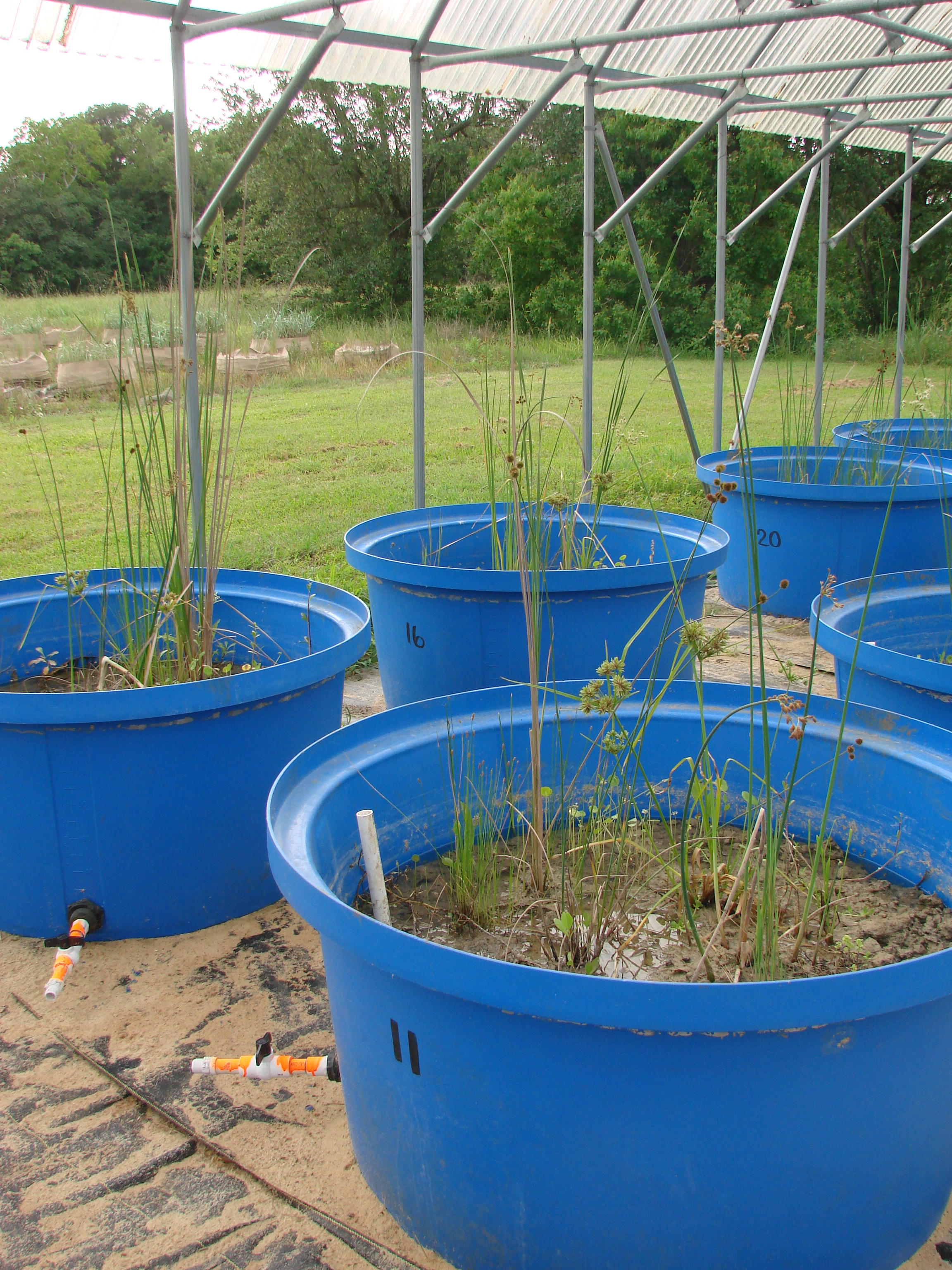
Our Mesocosms Experiments at the UHCC
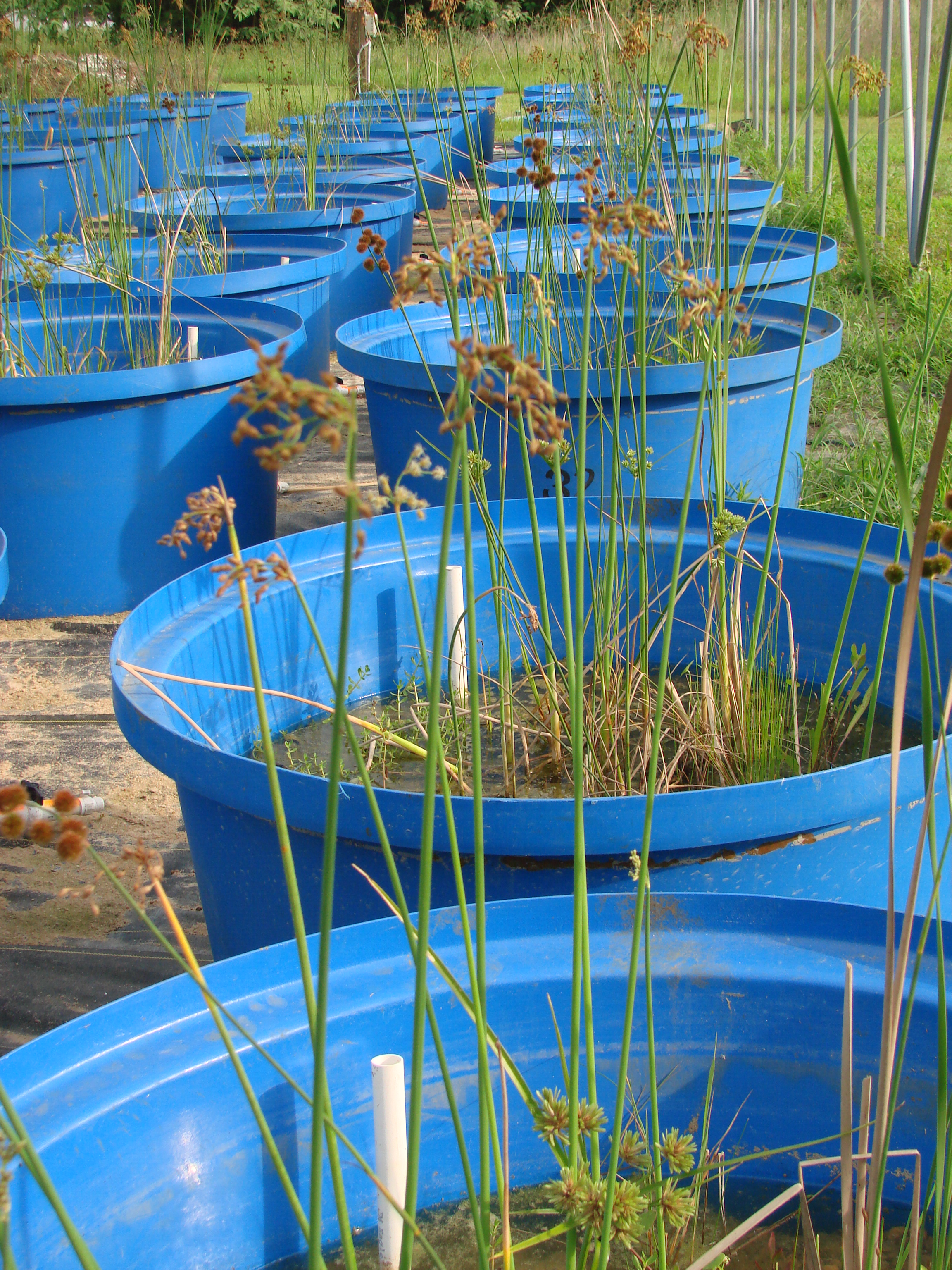
Our Mesocosms Experiments at the UHCC
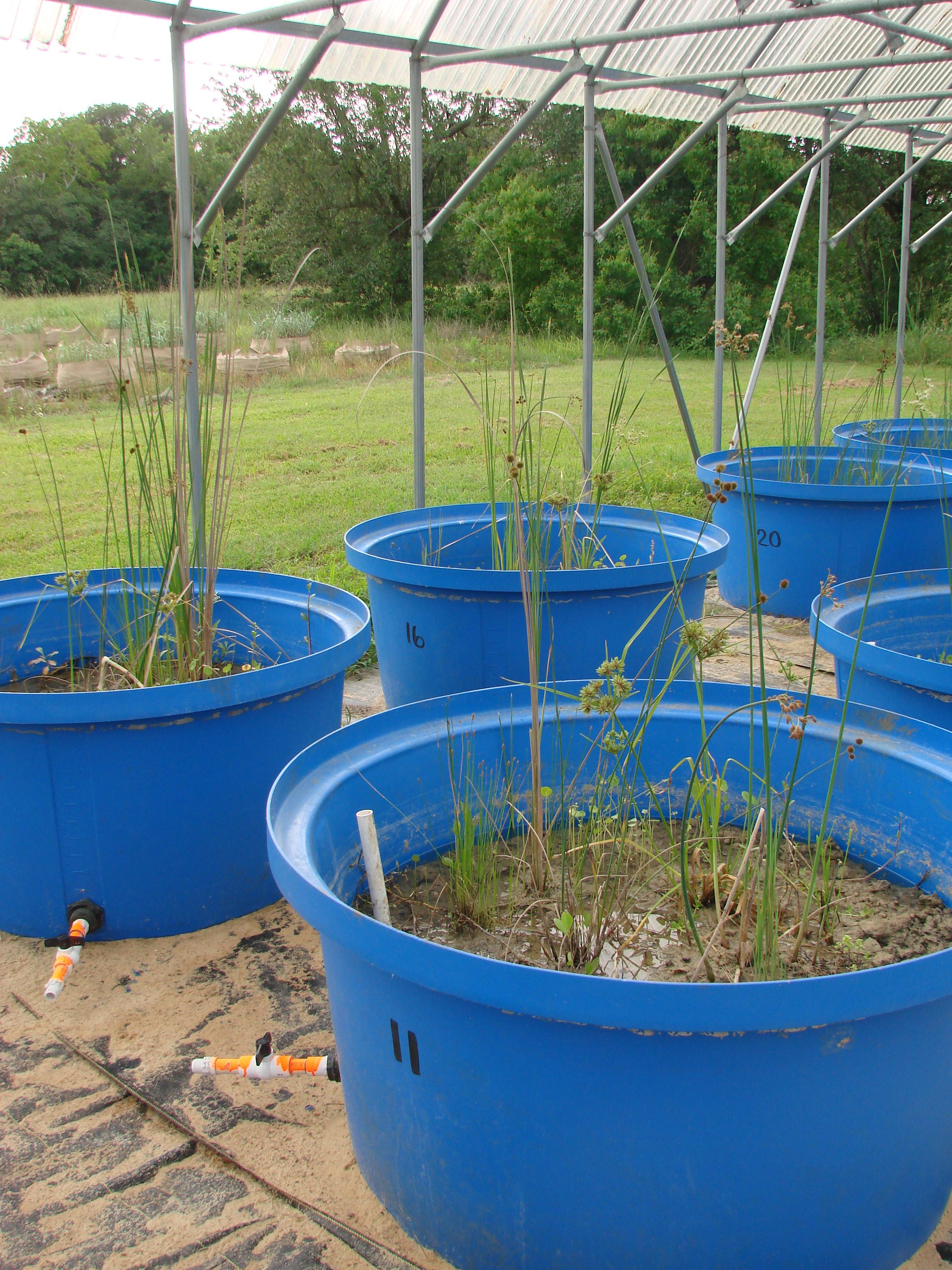
Our Mesocosms Experiments at the UHCC
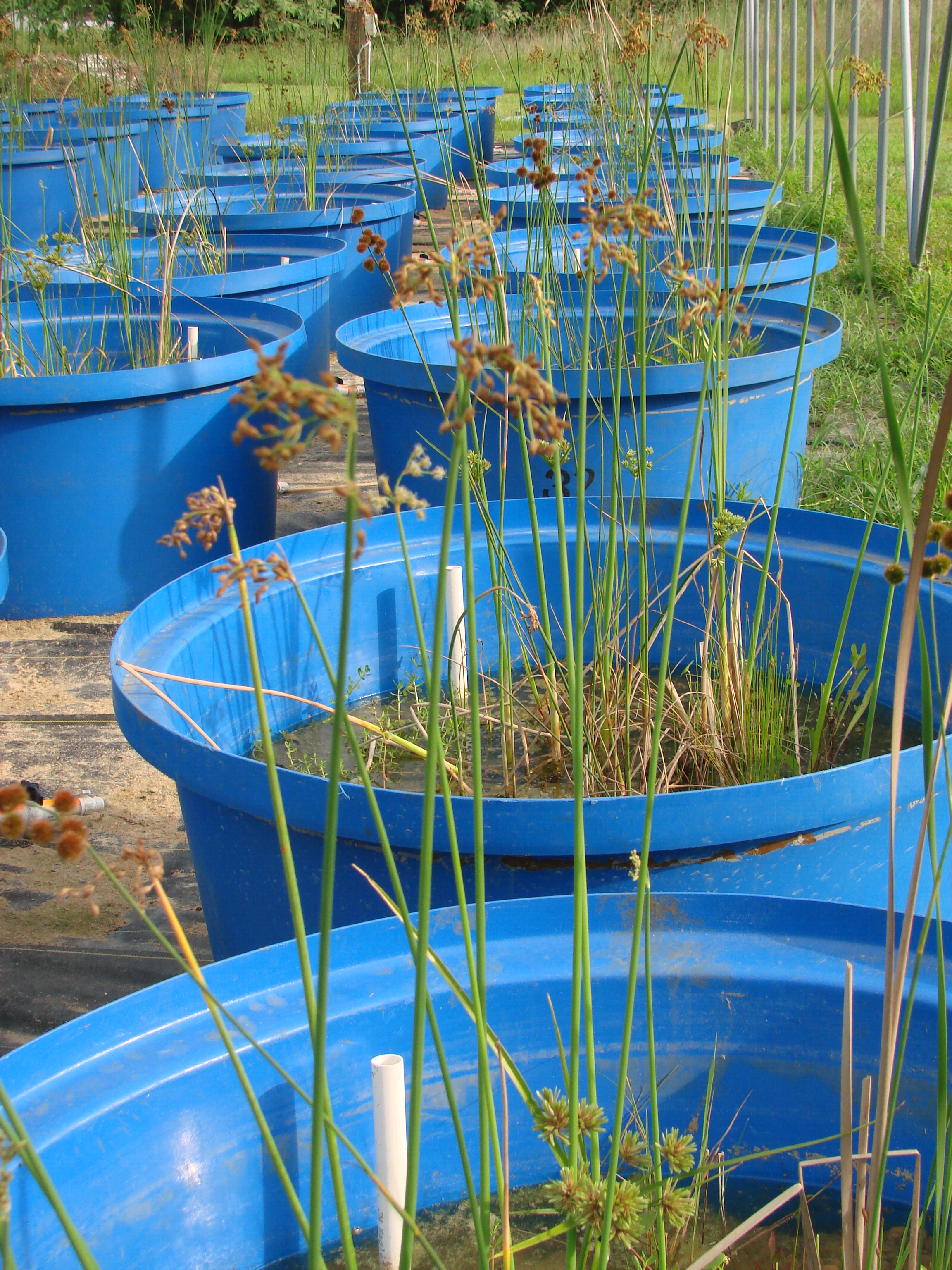
Our Mesocosms Experiments at the UHCC
Examining the impact of wetland area, volume and its location within the watershed on reducing the magnitude of floods
We are investigating how the size of wetlands (area and usable storage in relation to the watershed area) and their location within the watershed impact the magnitude of floods at the watershed-scale. Two distinctive watersheds (The Cypress Creek Watershed and the San Jacinto Galveston Bay Watershed) within the Harris County Flood Control District (Houston), which experience recurrent flooding events, are being used as case studies.
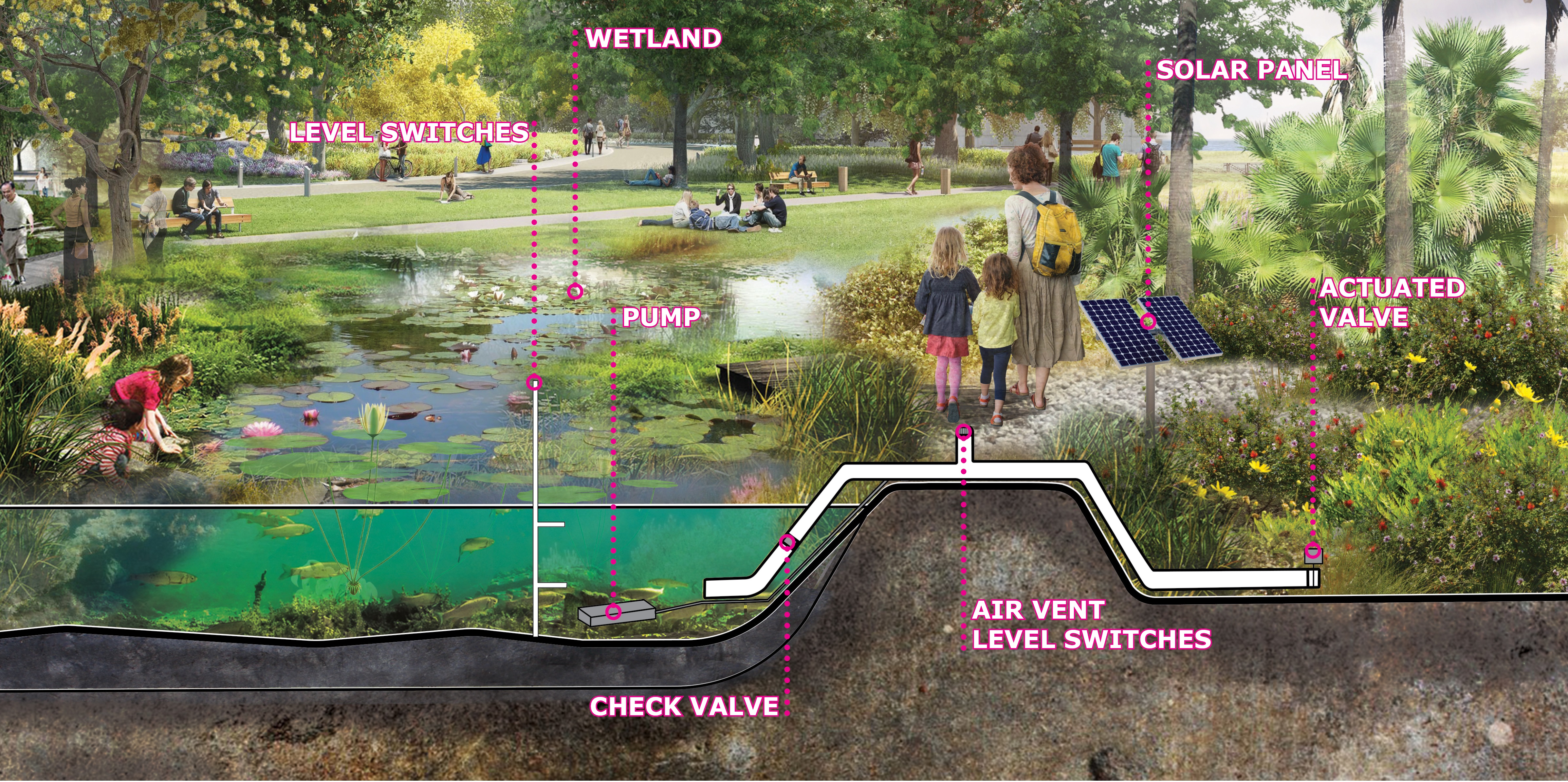
Sketch of a wetland with our smart siphon system
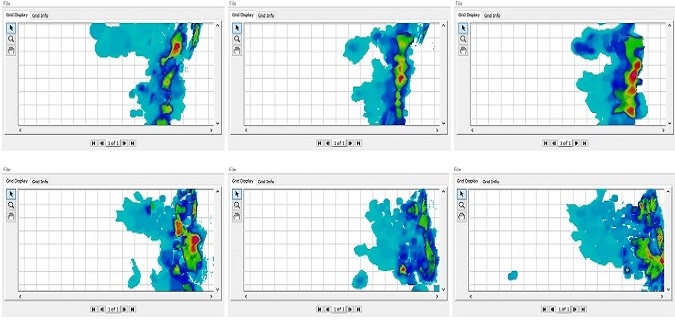
Typical gridded precipitation used as input to our DSS
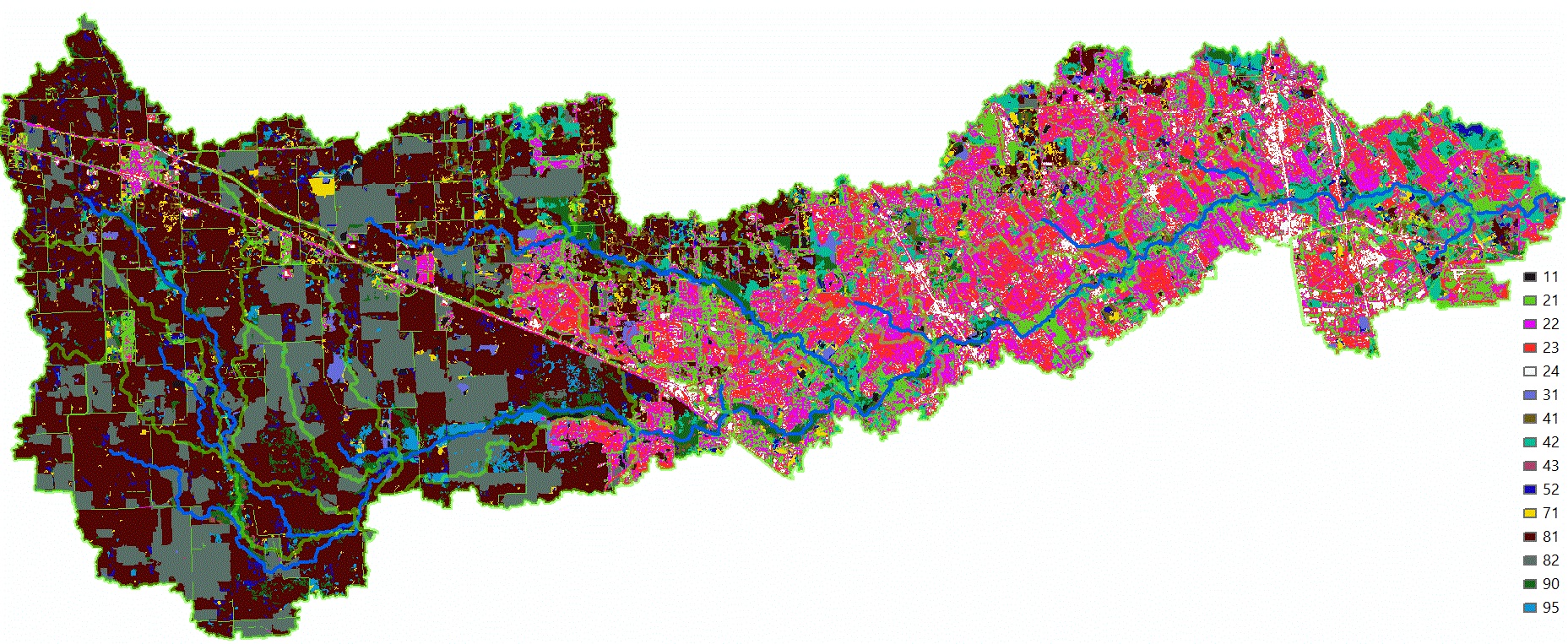
The numbers in the land cover image represent the land use class defined according to the USGS land cover institute (Case study: Cypress Creek, Texas).
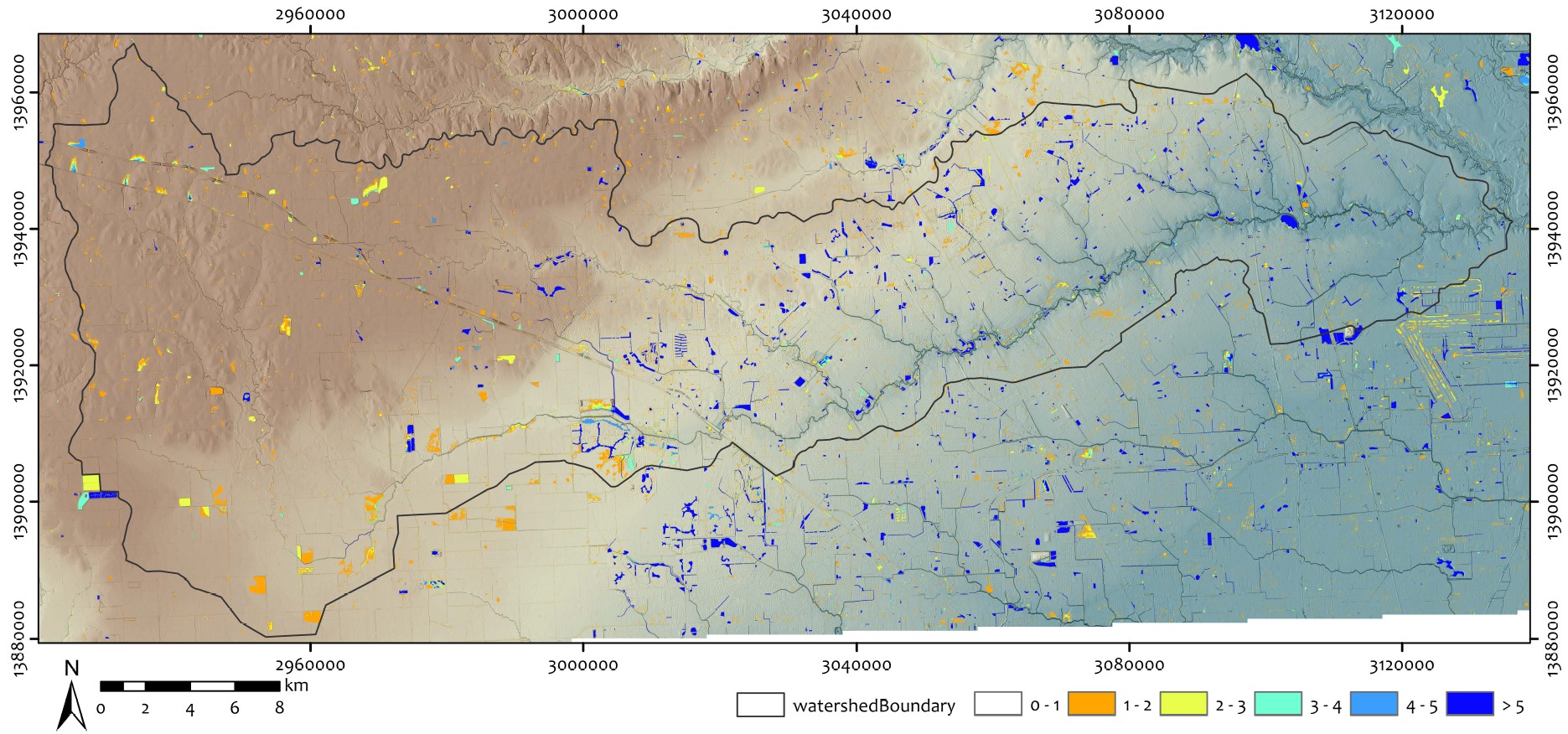
Water depths that can be sustained with existing terrain in Cypress Creek watershed, Texas
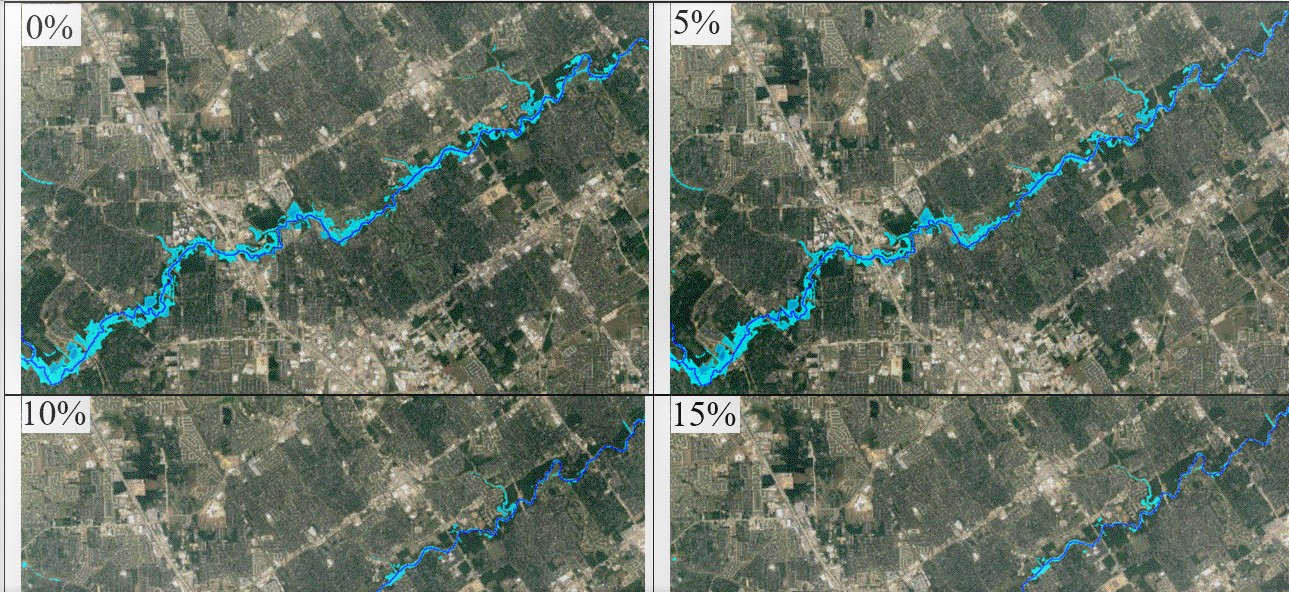
Evaluating how the size of wetlands in relation to watershed area contribute to mitigate flooding

Schematic of our DSS for watershed-scale flood control
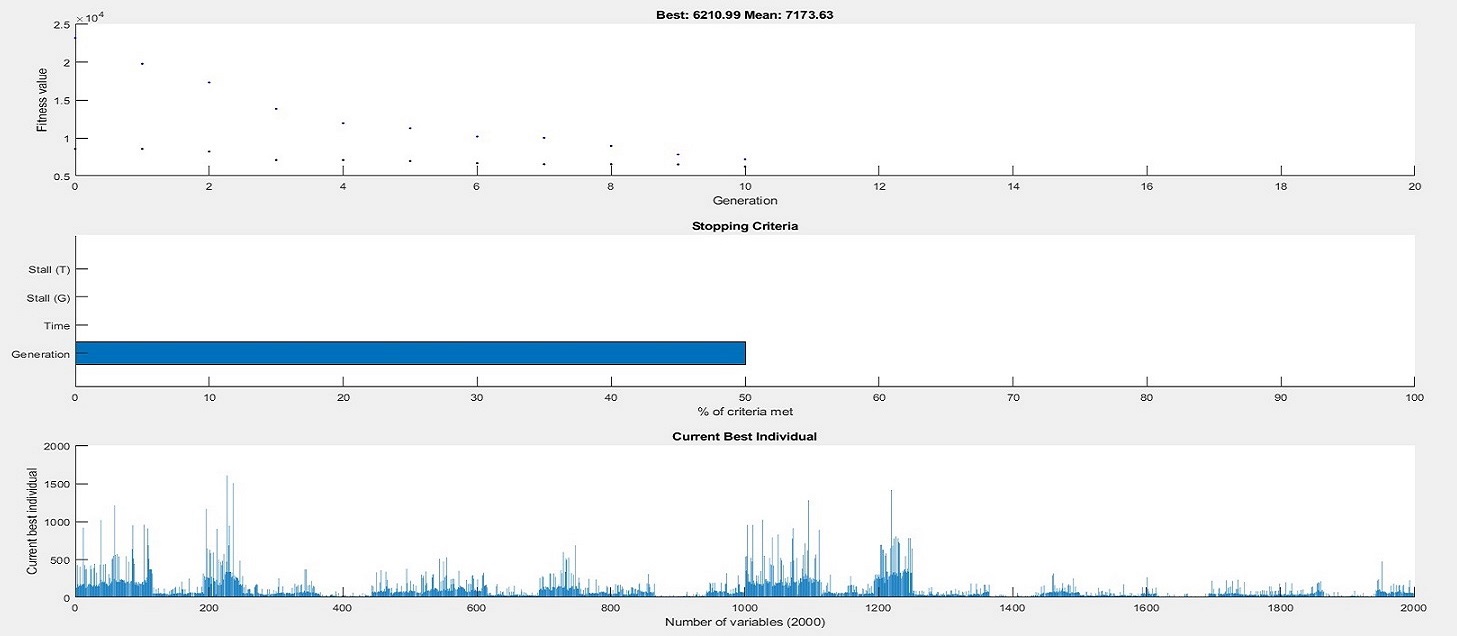
Interface of the genetic algorithm (GA) optimization for optimal flow releases from wetlands in Cypress Creek, Texas.
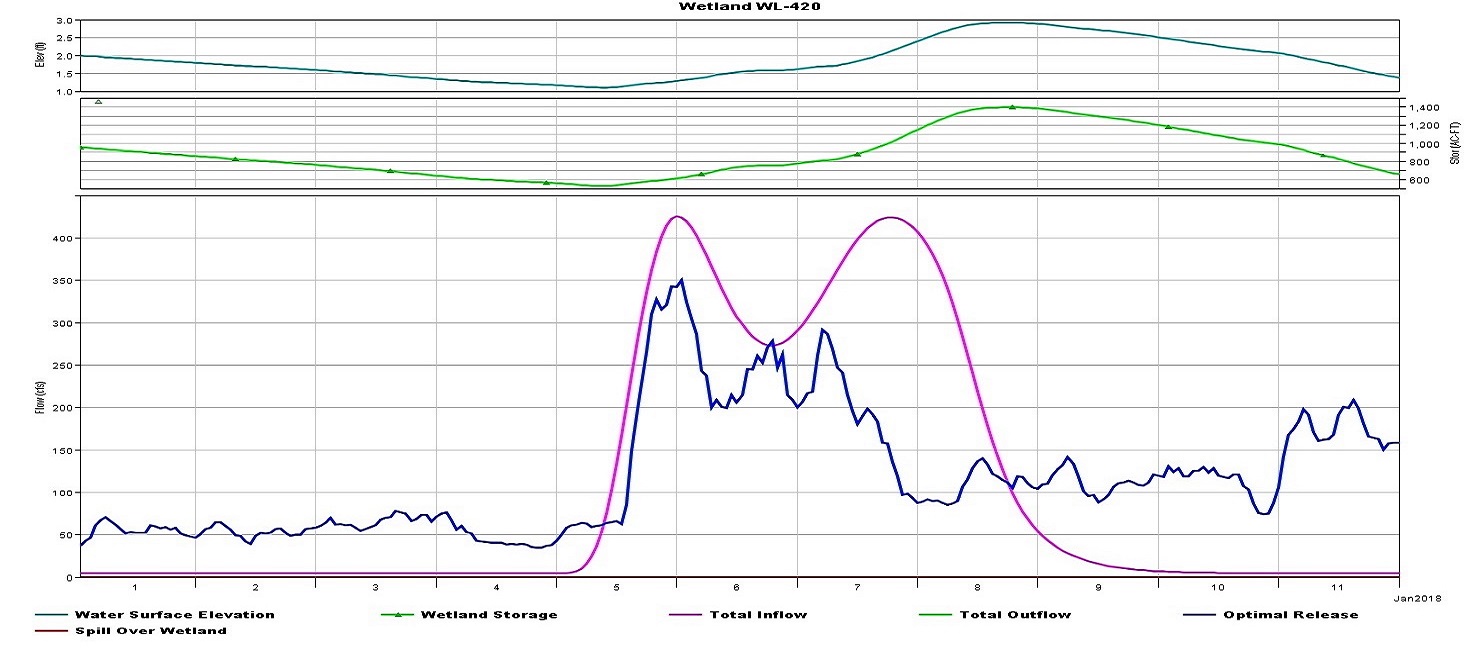
Typical result of our DSS displaying schedule of optimal water releases at wetland
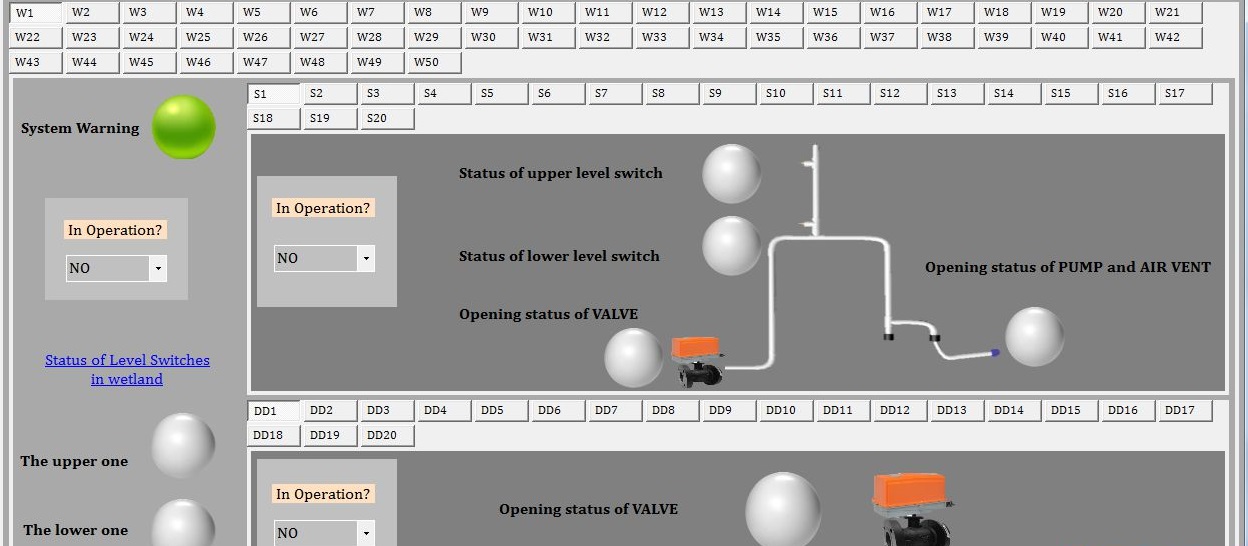
Interface of our software for the remote operation of a network of sliding gates and siphons in wetlands, detention ponds and reservoirs
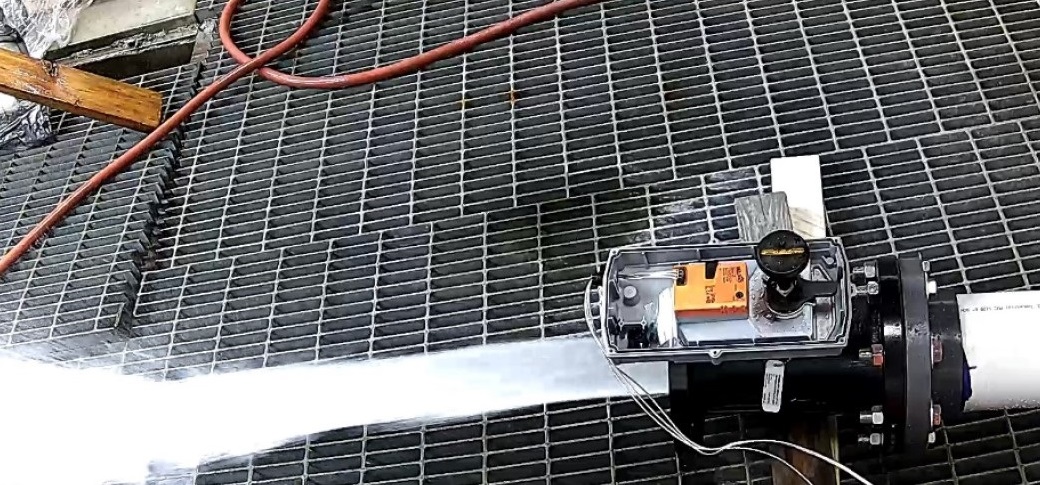
Water jet at the outlet of the actuated gate in one of our experimental tests
Towards real-time flood control
We are developing a Decision Support System (DSS) that can be used in near-real time for guiding on the optimal water releases from a network of wetlands, detention ponds and other storage systems for mitigating floods. This approach enables adaptive release of water from storage systemes (e.g., wetlands, detention ponds, reservoirs) hours or days ahead of rainfall events, thereby maximizing storage capacity and minimizing flooding. For this approach to be implemented, conventional storage systems such as detention ponds would be retrofitted (e.g., adding large gates) and the gates and siphons of these systems would be remotely controlled in an integrated manner using our decision support system. This decision support system incorporates components of hydrological modeling (HEC-HMS), inundation modeling (HEC-RAS) and genetic algorithm optimization. The automated exchange of data between these models is made via HEC-DSS files. To make possible the remote operation of water releases in wetlands and other storage systems in a relatively inexpensive way, we have developed a modular and integrated hardware/software platform for interfacing automated siphons/gates, sensors and sensor control/communication to enable remote operation of thousands of gates in wetlands, detention ponds and reservoirs. Our current integrated system uses 4G cellular network connection although we could also use direct radio, wireless and/or satellite links.
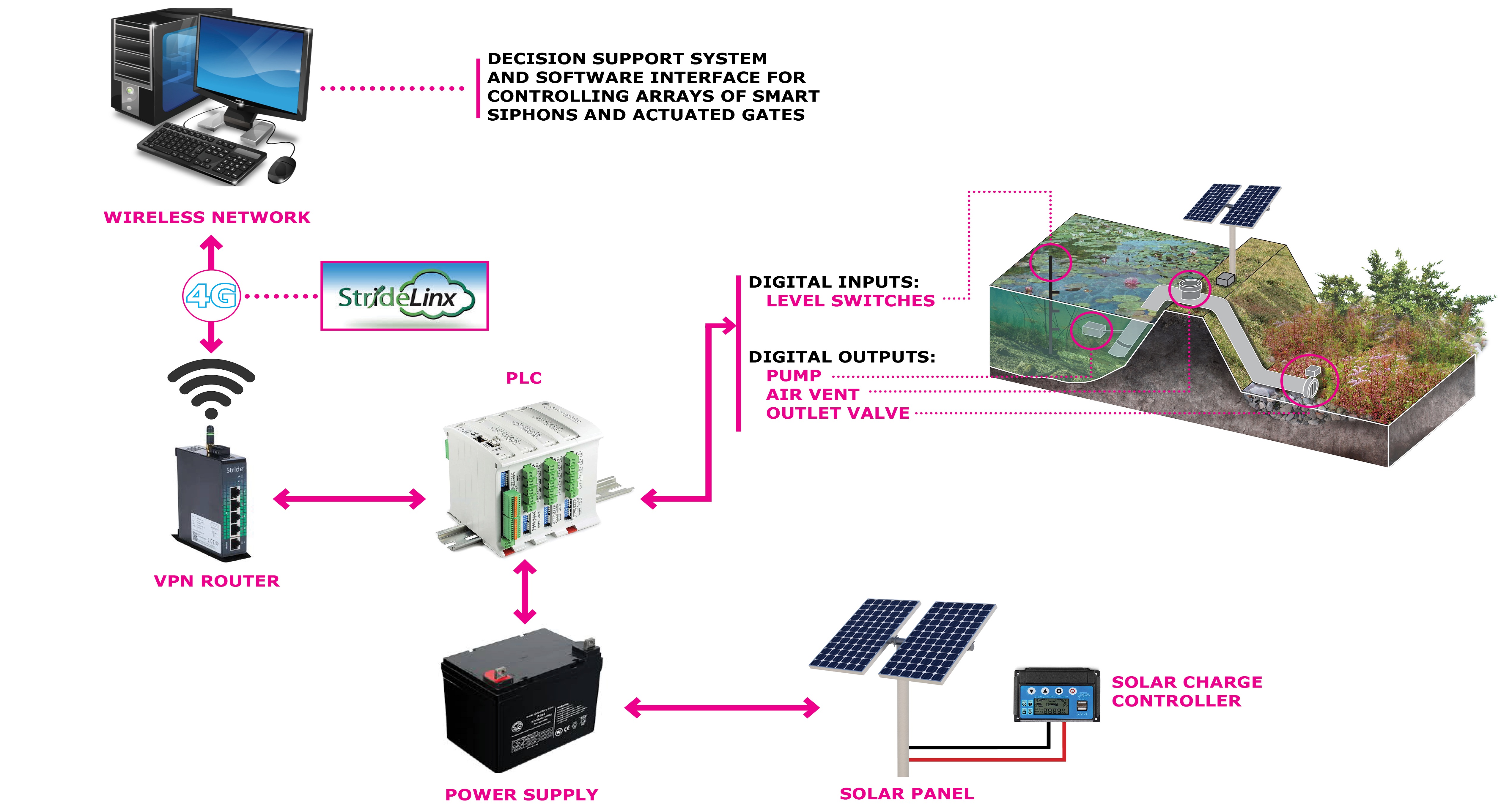
Schematic of the remote operation, communication and control of a network of storage systems for flood control
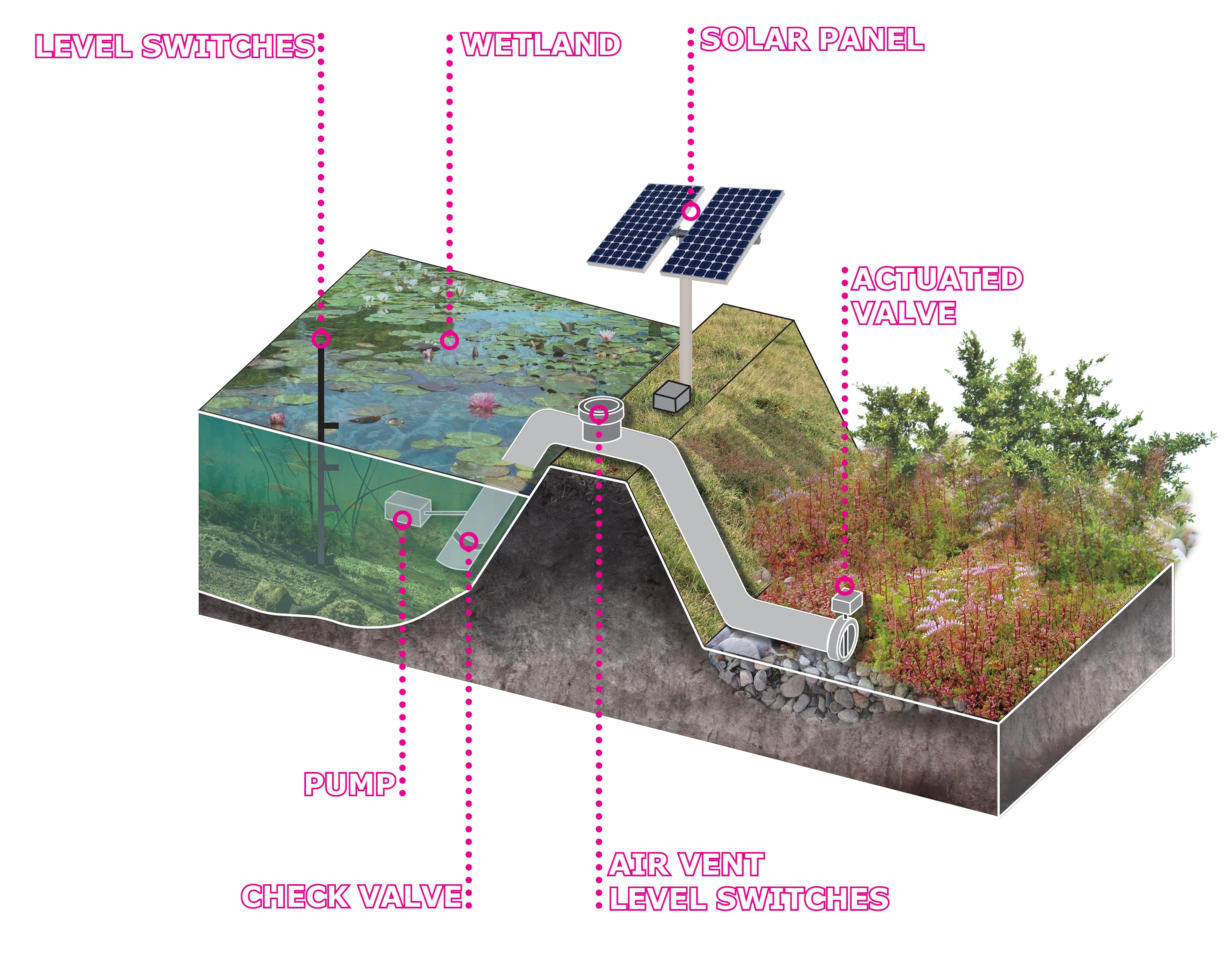
Schematic of our smart siphon system
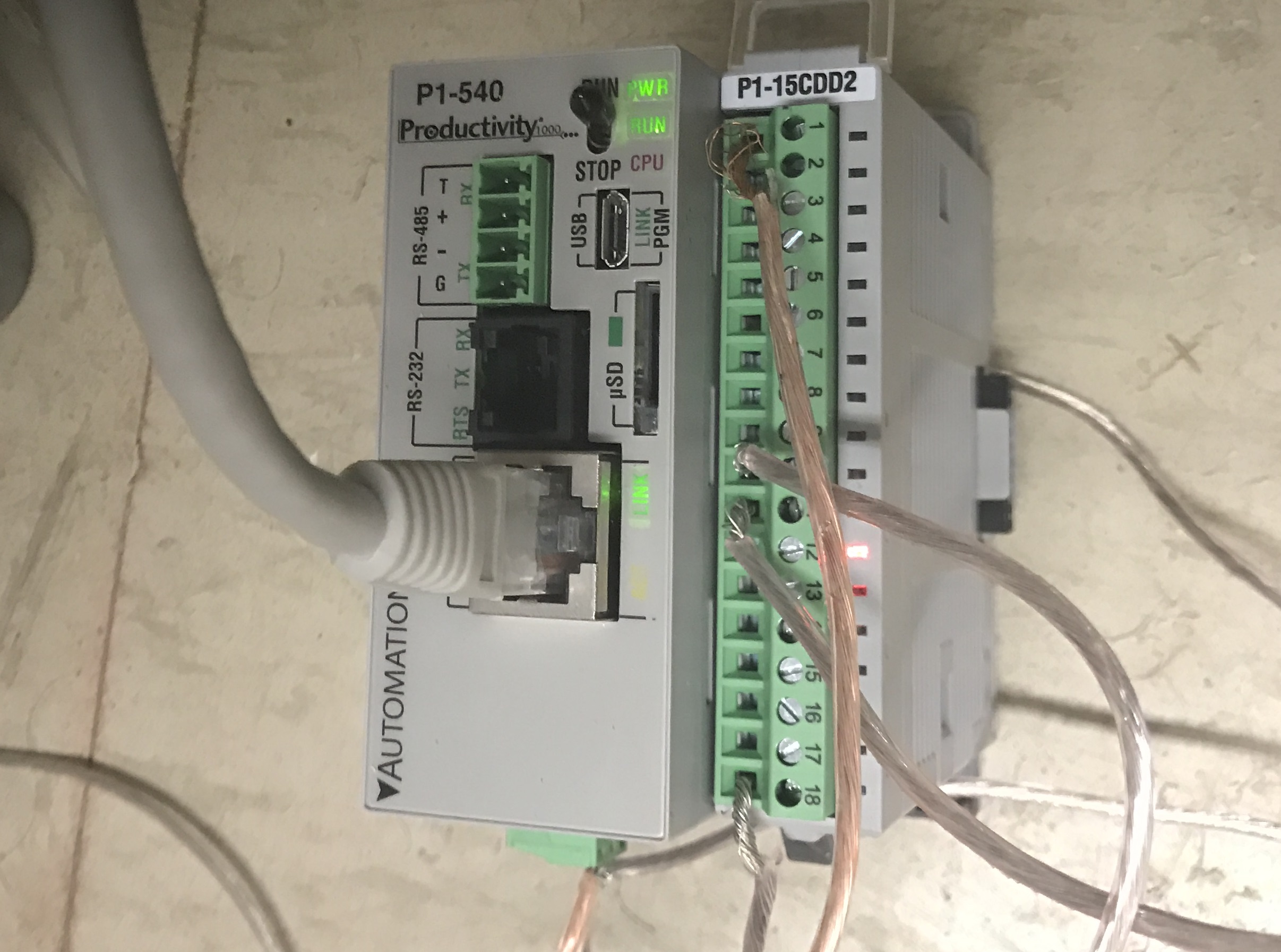
A programming logic controller used in one of our experimental tests
Project Participants
Current Research Outcomes:
The research outcomes of this project will be made available in this website. Please check the buttons below accordingly.
Website visitors since January 30, 2020
COPYRIGHT, ARTURO S. LEON





